Table of Contents
ToggleWhen it comes to achieving a flat belly, there’s no shortage of diets, detoxes, and fitness programs that promise quick results. But let’s face it: most of those approaches are temporary fixes. If you’ve tried them, you probably know the frustration of watching the weight—especially stubborn belly fat—come back after a short period. Instead of chasing quick fixes, a better long-term approach involves understanding how your body works and using a diet like the Mediterranean Diet to sustainably reduce belly fat. With its balanced approach to nutrition, the Mediterranean Diet and belly fat loss go hand in hand, helping you achieve lasting results.
Say goodbye to quick fixes and hello to a flatter belly the Mediterranean way!
In this article, we’ll explore how the Mediterranean diet, which focuses on whole foods and healthy fats, enhances belly fat metabolism and supports lasting weight loss. Plus, I’ll share practical tips and the research behind why this eating style works to target belly fat loss.
What is Belly Fat Metabolism, and Why Does It Matter?
Belly fat metabolism refers to how your body breaks down stored fat in the belly area and uses it for energy. Your body typically stores fat as an energy reserve for times when food is scarce, but in today’s world, food is almost always available. As a result, many of us eat more calories than we need, leading to excess storage as fat, often around the belly.
The key to sustainable belly fat loss is creating a balance between what you eat and how much energy your body burns. However, certain factors like inflammation, poor insulin sensitivity, and erratic blood sugar levels can slow down this process, resulting in increased belly fat storage.
How the Mediterranean Diet Supports Belly Fat Metabolism
The Mediterranean diet is rich in whole, nutrient-dense foods like fruits, vegetables, whole grains, lean proteins, and healthy fats, which all play a role in optimizing belly fat metabolism. Here’s how:
Healthy Fats that Boost Belly Fat Burning
Contrary to popular belief, not all fats are bad. In fact, healthy fats—especially those from olive oil, nuts, and fatty fish—can help your body effectively burn belly fat. These foods are high in monounsaturated fats and omega-3 fatty acids, which reduce inflammation and improve insulin sensitivity. Both of these factors are crucial for efficiently burning belly fat.
I’ve had clients who were initially hesitant to add fats like olive oil or avocados to their meals because they thought fats would lead to weight gain. However, when we transitioned from low-fat processed foods to healthy fats, they reported feeling more satisfied after meals and began to see noticeable reductions in belly fat. This is because the right types of fat actually help your body use fat for energy instead of storing it.
Anti-Inflammatory Power for Belly Fat Loss
Inflammation is another major factor that hinders belly fat metabolism. Chronic inflammation can make your body resistant to insulin, meaning it struggles to use glucose for energy. When this happens, your body tends to store more fat—especially in the belly area.
Fortunately, the Mediterranean diet is packed with anti-inflammatory foods, such as leafy greens, tomatoes, nuts, seeds, and fatty fish. These foods help reduce inflammation and promote a healthier environment for belly fat metabolism.
To learn more about how the Mediterranean diet can combat inflammation and support weight loss, check out the article: Inflammation with the Mediterranean Diet: The Key to Weight Loss? It offers valuable insights into how this diet can help you achieve your weight loss goals.
Balanced Macronutrients for Stable Blood Sugar and Belly Fat Control
Blood sugar control is essential for effective belly fat metabolism. When you consume foods that cause rapid spikes in blood sugar, your body responds by releasing insulin, a hormone that helps store excess glucose as fat. This process is one of the main reasons people accumulate belly fat.
The Mediterranean diet emphasizes whole grains, lean proteins, and fiber-rich foods—all of which break down slowly and prevent those insulin spikes. This creates steady energy levels throughout the day and encourages your body to burn stored belly fat instead of accumulating more.
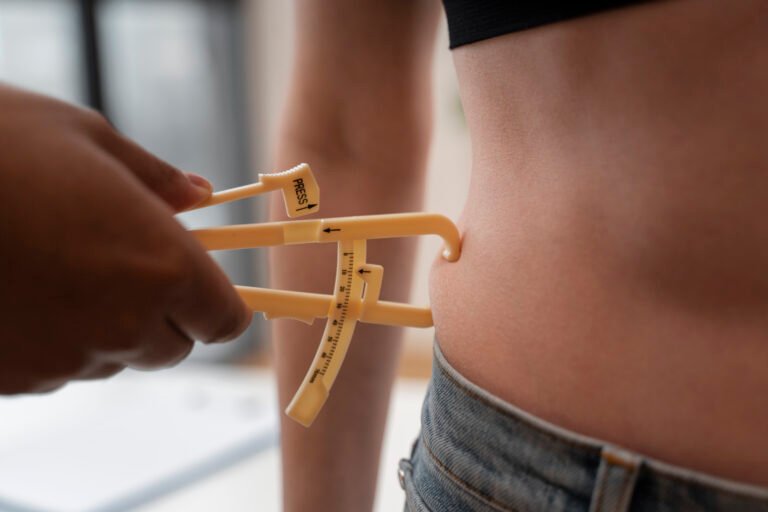
Key Habits for Success on the Mediterranean Diet to Combat Belly Fat
While the foods you eat are important, the habits you build around them are equally critical for belly fat loss success. Here are a few key habits that can help you maximize the fat-burning potential of the Mediterranean diet:
Mindful Eating for Belly Fat Portion Control
The Mediterranean lifestyle encourages mindful eating—slowing down and savoring your meals without distractions. This approach allows you to recognize when you’re full and naturally avoid overeating. When I work with clients, we practice mindful eating, and they find they are more satisfied with smaller portions, which ultimately helps in managing belly fat and makes better food choices overall.
Consistent Meal Timing for Belly Fat Regulation
Eating meals at consistent times helps regulate your metabolism and belly fat storage. Skipping meals or eating erratically can signal your body to slow down metabolism and hold onto fat as a protective measure. By sticking to a regular eating schedule, you can support better belly fat metabolism throughout the day.
Incorporating Movement into Your Day for Belly Fat Reduction
While this article focuses on diet, it’s important to note that regular physical activity is key to burning fat. You don’t have to hit the gym every day. The Mediterranean lifestyle promotes daily movement, such as walking, swimming, or even gardening, which helps naturally boost belly fat burning over time.

Research: Mediterranean Diet and Belly Fat Loss
Research strongly supports the link between the Mediterranean diet and belly fat loss, particularly in addressing central obesity. A systematic review published in Critical Reviews in Food Science and Nutrition analyzed various intervention trials and found that the Mediterranean dietary pattern significantly reduces measures of belly fat, including waist circumference and visceral fat. Out of the eighteen studies reviewed, thirteen (72%) reported a notable reduction in belly fat among participants following a Mediterranean diet.
This is crucial because visceral fat, the harmful fat surrounding internal organs, is a major risk factor for cardiometabolic syndrome and other health issues. These findings underscore the Mediterranean diet’s effectiveness not just in promoting weight loss but also in improving overall health and reducing belly fat.
Busting Myths About Flat Belly Diets
There’s a common myth that you can target belly fat loss in specific areas by doing certain exercises or following a “flat belly” diet. The reality is that spot reduction doesn’t work. Instead, a diet like the Mediterranean diet promotes overall fat loss, which will naturally help reduce belly fat over time.
Conclusion: Sustainable Belly Fat Loss Starts Here
Losing belly fat—and keeping it off—requires more than just a temporary fix. The Mediterranean diet offers a long-term, sustainable approach to weight loss by emphasizing whole foods, healthy fats, and balanced eating habits. This eating style not only supports belly fat loss but also improves overall health, making it an ideal option for anyone looking to lose weight and maintain a flat belly for good.
By following the Mediterranean diet, building mindful eating habits, and incorporating movement into your daily routine, you can achieve lasting weight loss and finally see those changes in your belly area.
If you’re ready to take the next step in your journey towards a flat belly and healthier lifestyle, subscribe to our newsletter for more tips, recipes, and success stories! Don’t forget to share this article with friends and family who might benefit from learning how to reduce belly fat sustainably. Explore our related content for additional insights into the Mediterranean diet and healthy living!
F.A.Q.
“Belly fat metabolism refers to how your body breaks down stored fat in the belly area and uses it for energy. Your body typically stores fat as an energy reserve for times when food is scarce, but in today’s world, food is almost always available. As a result, many of us eat more calories than we need, and our bodies store the excess as fat, often around the belly.”
“The Mediterranean diet is rich in whole, nutrient-dense foods like fruits, vegetables, whole grains, lean proteins, and healthy fats, which all play a role in optimizing belly fat metabolism.”
“The Mediterranean diet emphasizes whole grains, lean proteins, and fiber-rich foods—all of which break down slowly and prevent those insulin spikes. This creates a steady energy level throughout the day and encourages your body to burn stored belly fat instead of storing more.”

Nour is a registered dietitian, nutrition researcher, and founder of MedDietMindset. With a passion for evidence-based nutrition, she specializes in Mediterranean diet strategies, PCOS management, and sustainable weight loss. Nour is dedicated to transforming complex scientific research into clear, actionable guidance to support healthier, long-lasting lifestyle changes. Through her blog, she empowers readers to build habits that prioritize well-being, balance, and vitality.



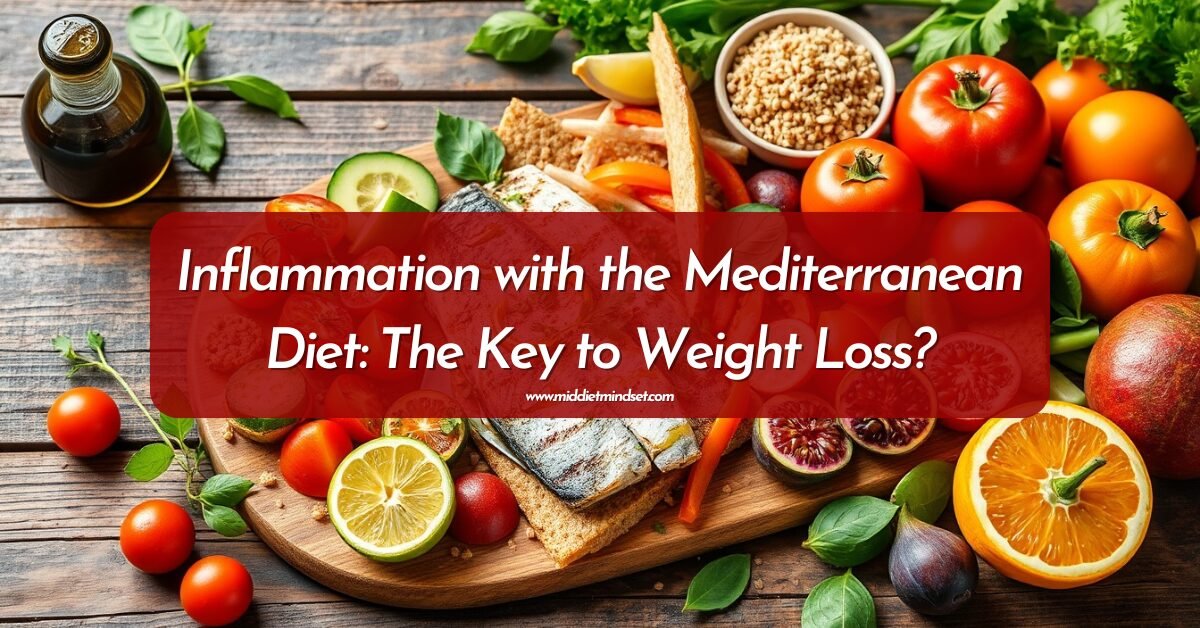

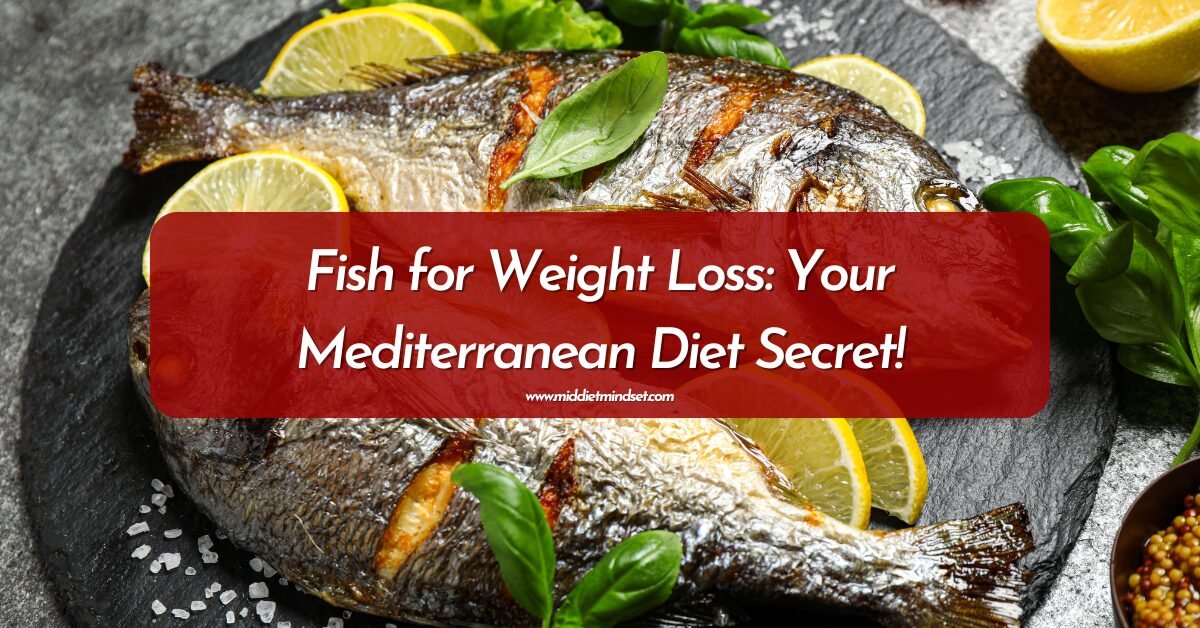
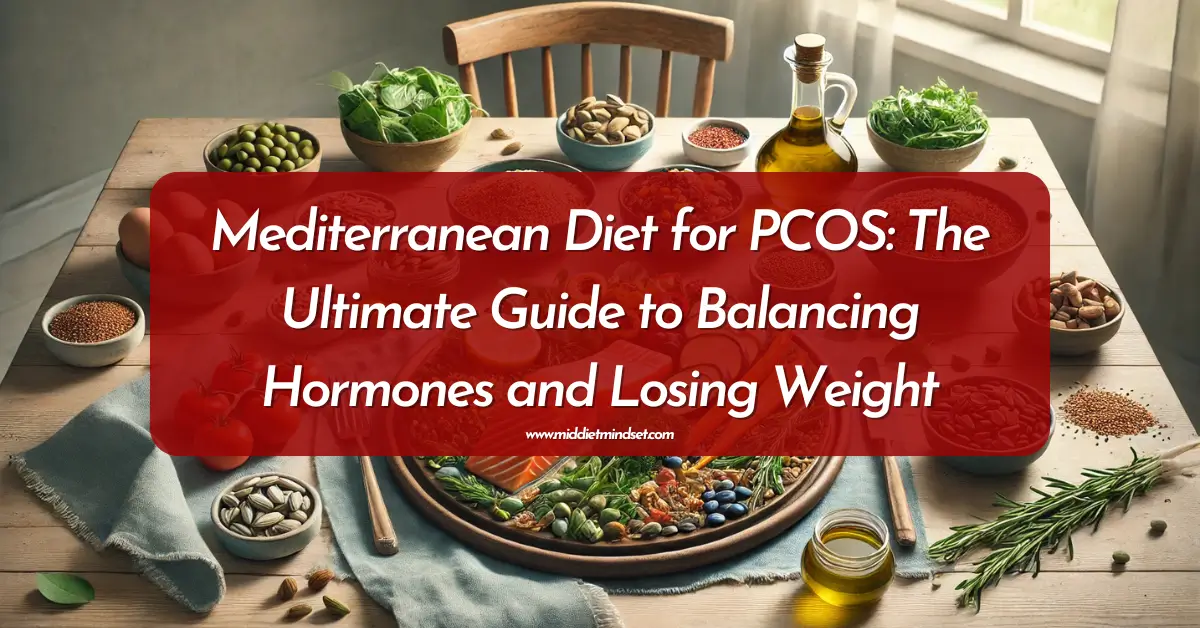

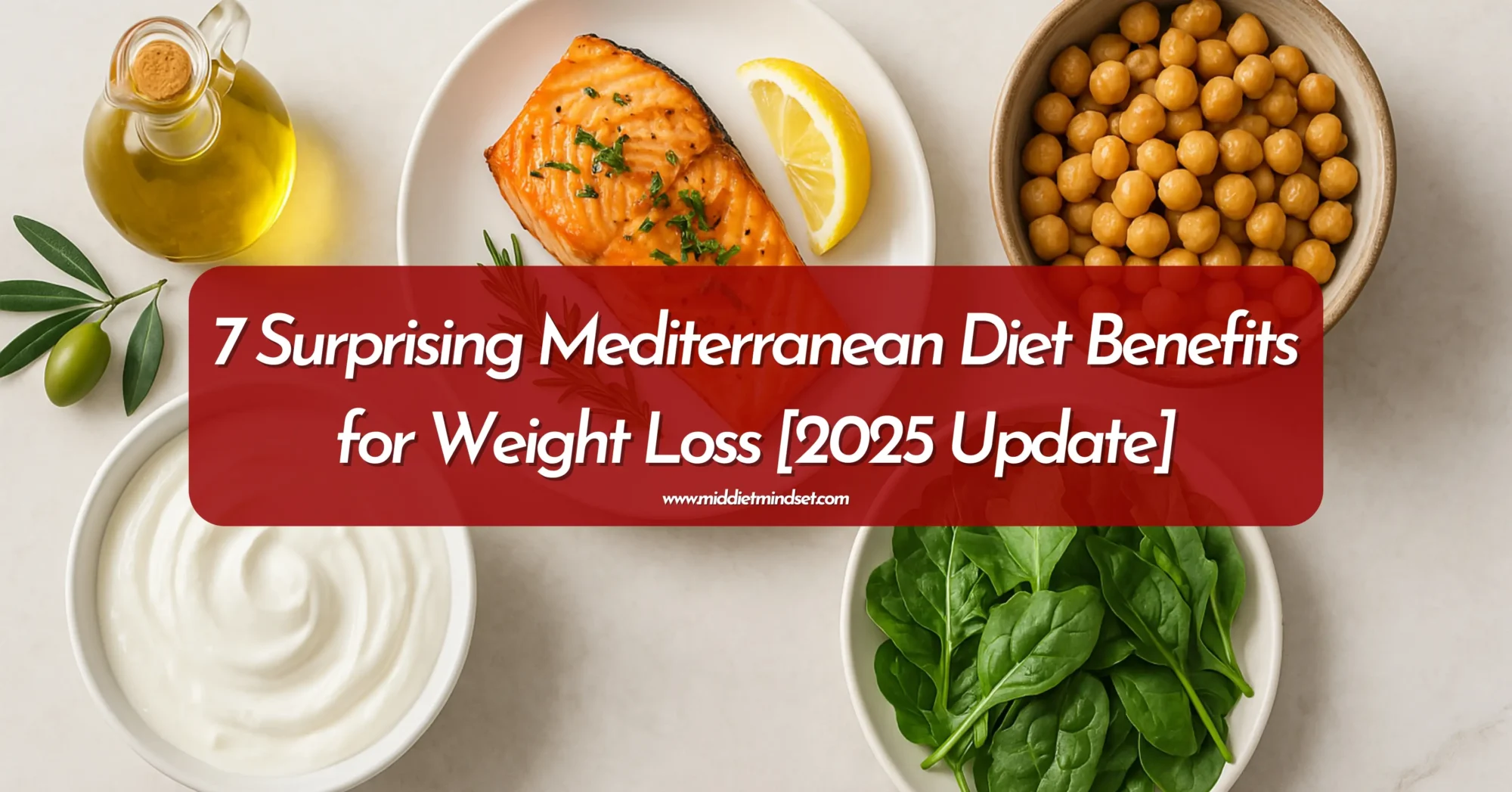

Pingback: Inflammation with the Mediterranean Diet: The Key to Weight Loss? – MedDiet Mindset
Pingback: Anti-Inflammatory Mediterranean Foods to Add to Your Plate Today! – MedDiet Mindset